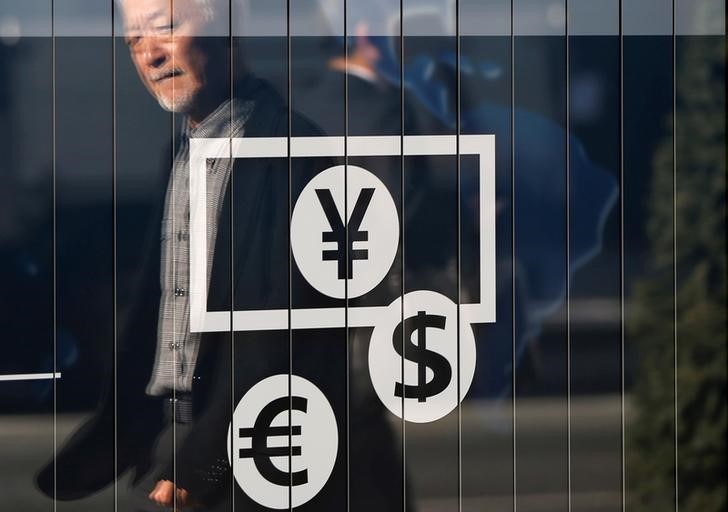Investing.com - The dollar edged lower against the yen on Tuesday as concerns over North Korea kept investors wary and the euro hit one-week highs following upbeat German trade data and hawkish remarks by a European Central Bank official.
USD/JPY dipped 0.12% to 112.56 by 03:15 AM ET (07:15 GMT). The pair had hit an almost three week high of 113.43 on Friday on upbeat U.S. wage growth data before retreating amid renewed fears over North Korea.
Demand for the yen was underpinned following reports that Pyongyang is preparing to test a long-range missile.
The U.S. dollar index, which measures the greenback’s strength against a trade-weighted basket of six major currencies, was down 0.24% to 93.33.
The euro moved higher, with EUR/USD rising 0.31% to 1.1776, the most since October 4.
The single currency was boosted by data showing that German exports outstripped imports in August, adding to evidence that the euro area’s largest economy performed strongly in the third quarter.
The euro also remained supported after ECB executive board member Sabine Lautenschlaeger said Monday the bank should scale back its asset purchases next year with the aim to halt the program altogether.
Sterling was higher against the dollar, with GBP/USD rising 0.17% to 1.3164.
The pound rebounded from one-month lows of 1.3026 on Monday as data pointing to rising labor costs added to rate hike expectations and as British Prime Minister Theresa May appeared to fend off challenges to her leadership.
The Turkish lira pulled back from Monday’s nine-month trough, with USD/TRY last at 3.6829.
The lira was hard hit after the U.S. and Turkey mutually suspended visa services between the two countries on Sunday amid an escalating diplomatic crisis.
Meanwhile, the Australian dollar was higher, with AUD/USD adding 0.39% to trade at 0.7780, while the New Zealand dollar was wallowing near four-month lows with NZD/USD at 0.7066.
The kiwi came under renewed selling pressure after the leader of the small nationalist party that will decide New Zealand's next government said on Tuesday that exporters should welcome a recent fall in the local dollar following an inconclusive general election.
